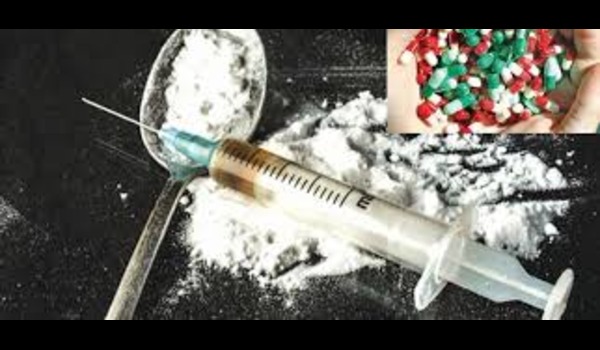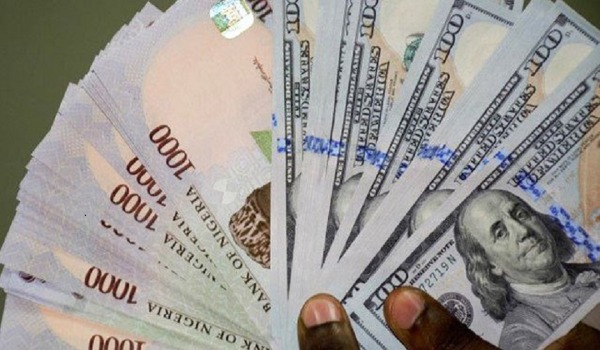2025 World Drug Day: FG decries rising drug abuse; Tinubu charge Nigerians to embrace it as a movement, others
Nigerian government has called for urgent, collective investment in drug abuse prevention as she joins the rest of the world to commemorate the International Day Against Drug Abuse and Illicit Trafficking, also known as World Drug Day.
The permanent secretary of the Federal Ministry of Health and Social Welfare, Daju Kachollom disclosed this on Tuesday at a press briefing in Abuja to commemorate the 2025 World Drug Day.
Daju stressed that drug abuse is not only a personal tragedy but also a national development challenge, posing serious threats to public health, security, and the nation’s future.
Referencing the 2025 World Drug Day theme, “The Evidence is Clear: Invest in Prevention,” Daju said, “As a nation, we are alarmed by the growing trend of drug abuse, especially among our youth. The 2018 National Drug Use Survey reported that approximately 14.6 million Nigerians had engaged in non-medical use of drugs such as cannabis and tramadol. This represents one of the highest rates in West Africa and is a clarion call for coordinated and sustained action.”
She stressed that the fight against drug abuse must go beyond treatment to include strong prevention strategies and multi-sectoral collaboration. “The Federal Ministry of Health and Social Welfare, in partnership with UNODC, WHO, NDLEA, and civil society organisations, is committed to implementing evidence-based approaches to prevention, treatment, and recovery,” she stated.
The Permanent Secretary also announced the rollout of the Medication Assisted Treatment (MAT) programme as a pilot in one of four selected states, with plans for nationwide scale-up. She called on all stakeholders, parents, educators, religious leaders, traditional rulers, and the media to play active roles in prevention efforts.
In addition, the Director of Food and Drug Services at the Ministry of Health spoke at the event. Olubunmi Aribeana warned that the country continues to witness alarming levels of non-medical drug use, particularly among young people. “In 2017 alone, an estimated 10.8 million Nigerians used cannabis, while 4.6 million used opioids for non-medical purposes,” she said.
She stressed the need for destigmatizing addiction and prioritizing rehabilitation through respectful, non-judgmental language and attitudes, while empowering communities to prevent drug use.
The Acting Country Representative of the World Health Organisation (WHO) in Nigeria, Dr. Alex Gasasira, praised Nigeria’s multi-sectoral efforts through the National Drug Control Master Plan (2021–2025). He cited the rollout of Medication-Assisted Treatment, 11 model drug treatment centres, and harm-reduction strategies like the needle and syringe program as key progress indicators.
Dr. Gasasira warned, however, that global and national statistics remain concerning. “Globally, 292 million people used drugs in the past year. In Nigeria, while 14.4 million people use drugs, the country can only treat about 10,000 annually,” he said, citing the NENDU report (2023). He also noted a high prevalence of HIV and hepatitis among injection drug users in Nigeria.
He called for broader public awareness, improved treatment access in all 36 states and the FCT, and the inclusion of long-term recovery and reintegration support programs.
President Bola Tinubu has said Thursday in his keynote address at the grand finale of a weeklong programme to commemorate this year’s World Drug Day at the Presidential Villa Conference Centre in Abuja that the fight against the scourge of substance abuse and illicit drug trafficking in Nigeria must be embraced by all as a national movement, rather than one for governments alone.
“Let us also be clear: this fight is not one for governments alone. It must be a national movement—driven by families, faith leaders, civil society organisations, youth groups, community leaders, businesses, and, crucially, people with lived experience. Their voices matter. Their stories inspire. Their leadership is essential.
“At the same time, we must not ignore the deeper roots of this crisis. Drug abuse is tied to poverty, inequality, violence and conflict. To effectively tackle this problem, our approach must be comprehensive. We must foster peace. We must promote inclusive development. And we must uphold human rights every step of the way,” the President said.
Tinubu who was represented by Secretary to the Government of the Federation (SGF) Senator George Akume, assured that Nigeria stands firmly with the global community in the effort to tame the scourge of drug abuse and its consequences.
“We are committed to working hand in hand with all nations to end this menace and tame illicit trafficking of substances. Together, we can dismantle the systems that sustain this crisis. Together, we can build a future where prevention is strong, treatment is accessible, and recovery is not just possible—but celebrated.
“There is no doubt that in the past two years, this has been the focus of the Renewed Hope Agenda of our administration; breaking the burden of poverty, uplifting millions out of squalor and caring for the needs of the masses especially our youth population through student loans scheme and other empowerment initiatives,” he added.
Nigeria’s First Lady, Senator Oluremi Tinubu, in a statement issued to mark the 2025 International Day Against Drug Abuse and Illicit Trafficking, said Nigeria must act decisively to shield its young people from the dangers of drugs and criminal networks, declaring that prevention is the most powerful tool in protecting the youths.
“The evidence is clear: when we invest in prevention, we protect lives,” she said. “Every child in Nigeria deserves to grow up in a safe and nurturing environment, free from the devastating grip of drug abuse and the threats of organised crime.”
The First Lady, who leads several youth-focused initiatives under the Renewed Hope Initiative, called on leaders at all levels, parents, teachers, and community members to play their part in creating a healthier, drug-free Nigeria.
In his welcome remark, Chairman/Chief Executive of NDLEA, Brig.-Gen. Mohamed Marwa (rtd) said there is no better time than now for the country to take drug use prevention seriously.
According to him, “The reality around us is a strong indication—a wake-up call—for us as parents, guardians and governments to step up preventive measures.
“For our nation, prevention is particularly critical, as we are already grappling with a serious challenge. Seven years ago, we came to the stark realisation that Nigeria had one of the highest drug abuse prevalence rates in the world.
“Today, with a population exceeding 230 million, it is both urgent and pragmatic to prevent new individuals from being drawn into the population of drug users. As parents, guardians, and leaders, we must be more vigilant and recognise that the issue of drug abuse is not distant—it is close to home.
“We must acknowledge that children are especially vulnerable, and we should not dismiss experimentation with illicit drugs as behaviour limited to a particular demographic.”
Marwa explained that the NDLEA has continued to strengthen prevention strategies while being ferocious in its drug supply reduction activities.
He stressed that addressing the socio-economic drivers of drug abuse was also crucial, as a prevention strategy.
World Drug Day is observed on 26 June each year to promote action and strengthen global cooperation in combating drug abuse and illicit trafficking.




